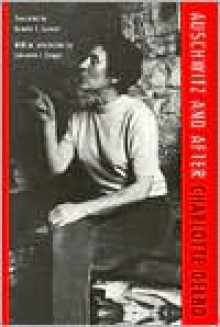
Still, I am glad I read this book. I would recommend readingAuschwitz and After as well (or in place of).


This book is one of those good books that you find difficult to say how good it is.
Delbo was imprisoned in Auschwitz (and Ravensbruck) because of her involvement with the French Resistance (her husband was killed). This was written long after the events and is a blend of poetry and memory.
It is readable and wonderful and heartbreaking. They really should reach this in school,to be honest.

Disclaimer: ARC via Netgalley.
Everyone knows that no one event is remembered the same way by everyone involved. Memory becomes even harder to pin down when those involved in the event have reason not to remember or lose that memory though illness or death.
In many ways, this hard to search for truth is what Borzeix is trying to straighten out in this book. He wants to discover the truth behind the death of four people, perhaps connected to the Resistance, as well as more about the fifth man that not everyone talks about. The fifth man was a Jewish man whose family survived the Holocaust. It is a discussion and a letter about a memorial and tombstone that, in part, sets Borzeix upon his quest. He also seems possessed by a desire to discover and come to terms with Occupied France’s treatment of its Jewish population.
The investigation aspect of the book is engrossing, if a little disorganized. At times, the direction of the book is a little choppy to follow. That said, the most important parts of the book conceal the sections about memory, in particular national memory and a struggle to come to terms with a nation’s past. Considering that is something many nations are dealing with, it brings the work a step above most.

Disclaimer: ARC via Netgalley.
If you have seen the older movie version of Annie, you have heard of Marie Duplessis, whose fictional mirror appears briefly when Annie attends a film.
Marie Duplessis inspired one of the most famous novels in literature -
La Dame aux Camélias. It is one of those stories - a mistress of gold, the undeserving lover.
In many ways this book is important because it puts more than a face to Marie Duplessis - though she doesn't really seem to move far from the idea of a romantic figure. She is still, somewhat, in shadow.
This isn't due to any fault of Weis. While some of the statements are too general, the research does seem to be solid (though I would have liked more footnotes/endnotes in some sections).
At times, I felt the language was a bit too romantic, but the book is a good study of the subject. Recommend for Dumas and Opera lovers.